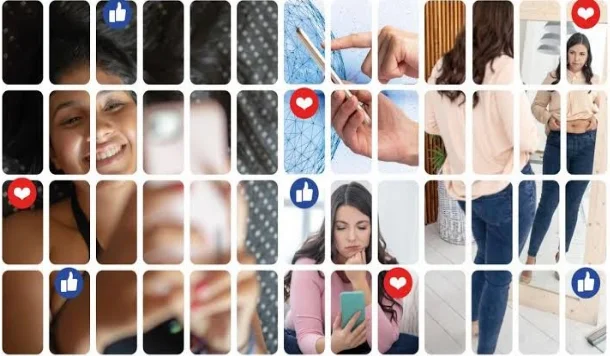~ Yashika Sehgal and Saakshi Sharma
In today’s times, it is very difficult to find a person who does not have a social media profile. Our usage of mobile phones has considerably increased due to the pandemic and the work from home situation. We are all glued to our mobile phones and all we do is scroll through Instagram, Facebook, etc. Looking at other people’s profiles, what they are doing, where they are going, what they are posting can have an effect on us which may either be positive or negative.
Positive Impacts of Social Media
- Helps stay connected
Due to the lockdown, social media has become the only way to stay connected to the people we know. It helps us in fighting loneliness.
- Meeting new people
It enables us to meet new people who share similar likes, dislikes, ambitions etc and thus form our own social network of people.
- Source of inspiration
Social media continues to inspire so many each day to showcase their talent to the world.
- Platform for discussions
It gives a platform to people to speak their unfiltered opinion and also helps to create awareness among people regarding hotly debated topics and also issues that tend to go unnoticed.
Negative Impacts Of Social Media
While many of us love using social media to stay connected, ironically, it’s excessive use can lead to anxiety, melancholy, loneliness, and FOMO (fear of missing out). Multiple studies have linked heavy social media use to an increased risk of sadness, anxiety, loneliness, self-harm, and even suicidal thoughts. Social media can have a negative influence on our mind and mood in following ways:
- Questioning One’s appearance and life
Even if you are aware that the photographs you see on social media have been edited and modified, they can nevertheless make you feel anxious about how you appear or what is going on in your own life. Likewise, we’re all aware that other people only talk about the great times of their lives, rarely the sad points that everyone goes through. But that doesn’t make you feel any less envious or dissatisfied when you go through a friend’s retouched images of their sunny beach vacation or read about their new job promotion. This can lead to low self-esteem, creation of a negative body image and even eating disorders.
- FOMO
It is true that FOMO existed before social media but sites like Facebook and Instagram appear to exaggerate thoughts that others are having more fun and living better lives than you are. It makes you feel that you are missing out on some things. This might lower your self-esteem, cause worry, and encourage you to use social media even more. Just to check for updates or notifications and replies or comments FOMO makes you pick up your phone every few minutes. Doesn’t matter even if you’re risking your life while driving, losing out on sleep, or putting social media involvement above real-world connections. It always creates a sense of emptiness inside you that you seek to fulfill.
- Isolation, Depression and Anxiety
According to a study conducted at the University of Pennsylvania, frequent use of Facebook, Snapchat, and Instagram increases rather than decreasing loneliness. Reduced social media usage, on the other hand, can help you feel less lonely and isolated and also improves your general well-being at the same time.
You’re more likely to acquire or exacerbate mood disorders like anxiety and depression if you prioritise social media activity over in-person relationships. To be mentally healthy, humans require face-to-face contact. In person interaction reduces stress and anxiety and relaxes your mind.
- Cyberbullying
Around 10% of teenagers say they’ve been bullied on social media, and many others have received nasty comments. Twitter and other social media platforms can be hotbeds for spreading harmful rumours, misinformation, and abuse that leads to emotional instability and a scar deep inside the individual.
Some studies conducted on how social media affects your mood
1.According to a Serbian study, the more time high school students spend on social networking sites, the more likely they are to suffer from depression.
2.Researchers from the University of Pittsburgh discovered that the more platforms people use, the greater their risk of mental illness.
30According to a 2017 Duke University study, social media use can potentially increase loneliness and isolation.
4.According to a 2011 study published in Cyberpsychology, Behaviour, and Social Networking, Facebook can also raise our self-esteem because we can choose the most favourable elements of our appearance, personality, and life for others to view, which boosts our self-esteem.
5.Other studies in the United States have found that using social media to stay in touch with people can help with depression and that using the internet to connect with friends and family can actually strengthen social bonds rather than lead to isolation in the over-50s, according to a study from the University of South Florida.
Conclusion
Yes, social media has an impact on our mood in a variety of ways. While scrolling through a feed or reading a post, you may feel sad, happy, angry, or a combination of feelings. The thing we should always keep in mind is that rather than comparisons, abuses, and misinformation, social media should be used as a forum for debates, deliberations, and information.
Must Read: https://skchildrenfoundation.org/social-media-and-its-effects/


